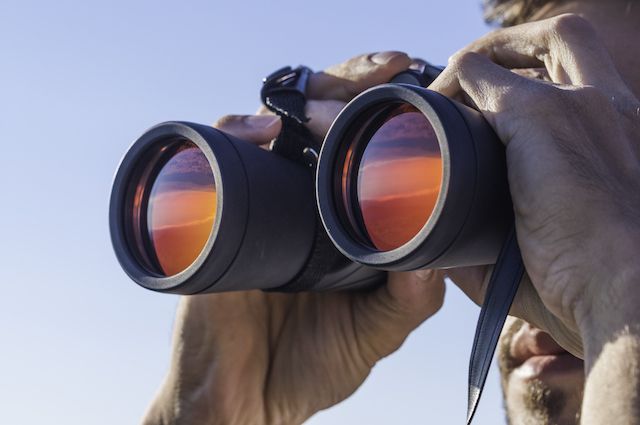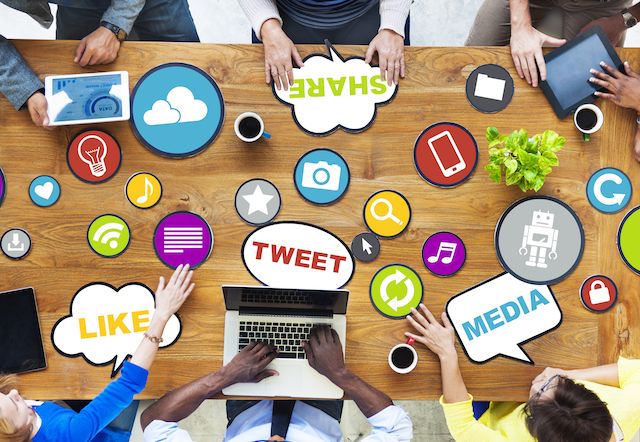Normally when we think about social media research we think about it in the context of advertising, or Facebook's ever-watchful eye.
However, scientific researchers are flocking to social media as the 21st century equivalent to watching animals with binoculars from the bushes – sites like Facebook, Twitter, and Instagram are an opportunity to observe people interacting with each other and social phenomena in an online "natural environment".
Why Are Researchers So Interested in Social Media?
There is no better source of data than what we put out through our social media profiles.
Think about all the information someone could learn just from looking at your Facebook timeline -- your demographics, family relationships, likes, dislikes, and opinions from the last several years are all available and stored in one easy-to-access location.
And it's not just Facebook! Think about communities that spring up online – forums that act as support groups for people diagnosed with a rare disease, Twitter campaigns to keep a favourite TV show from going off-air, and Tumblr discussions highlighting young people's frustrations with current political issues.
According to the Pew Research Center, over 74% of all Internet users are active on social media, and that statistic remains relatively constant across gender, education, and income levels – a cross-section of the population that is basically unparalleled by any other research tool currently available.
How Does Social Media Research Work?
This kind of research opportunity has led to the coining of the term "nethography" -- a play on the classic research style of "ethnography," where a researcher immerses themselves in another culture in an effort to understand the contextual influences on a certain social group.
Researchers are now taking classic ethnographical research strategies and using them online – immersing themselves in the online context and examining how it affects different communities of users.
Unlike classic observational research, online posts allow researchers to not only see how people are reacting to events but also to potentially gain insight into the meaning behind their reactions – a depth of knowledge that has previously been nearly impossible to accomplish through observation alone.
While this kind of research is just starting to find its footing in the scientific context, it has already led to some very interesting insights into fields that you might not expect.
These seven fascinating studies are just some of the interesting ways that social media is being used as a tool for studying seemingly unrelated fields.
1. Social Media and Mental Illness
Researchers at the University of Ottawa are working on text-mining algorithms that uses information from public sites (such as Twitter, Facebook, and public medical forums) to search for patterns that may indicate expressions of very strong emotion or changes in an individual's online activity behaviours.
Their intended use for their research is as a monitoring tool that could be used by doctors for youth who are at-risk of mental health issues, so that concerning trends online could be noticed and acted upon via an alert system before other behaviours may be observed in their off-line lives.
2. Social Media and Police Threat
Social Media research often doesn't attract our attention until it is put to practical use.
One piece of software recently attracting attention is a police monitoring system known as Beware. The software has been highly controversial, but it is one of the best examples of how powerful research into statistics and data collection with social media can be.
Beware gathers billions of data points, including arrest reports, property records, commercial databases and social media postings to calculate a threat level of green, yellow, or red (the highest ranking). The program still isn't perfect, and no one is presenting it as such, but it does demonstrate how social media postings may helpful in identifying risk in offline scenarios.
3. Social Media and Emotional Contagion
Research using Facebook data from millions of users allowed researchers from the University of Namur to find that emotions can spread across social media much the same way that a co-worker complaining about her day can bring down the mood of an entire lunchroom.
This study showed an interesting trend:
- Firstly, the emotionality of people's statuses were influenced by rainfall
- However, the posting by the person who was actually affected by the rainfall would cause at least 1-2 other people on their friends list to also post a status with increased emotionality.
While this study used rainfall as a measurement unit (which may seem inconsequential in the larger picture), it's important to consider how these findings may be mirrored in situations with large-scale tragedies.
Could this study indicate that social networks are creating a form of "global emotional synchronicity", where individuals' emotional experiences create waves of emotion across the globe?
4. Social Media and City Dynamics
City planners and developers are very interested in understanding how cities work – where people spend their time, how large the area is that they cover every day, and which parts of the city attract the most traffic.
A study at Carnegie Mellon University used 18 million social media check-ins to understand the living patterns of people in Pittsburgh, Pennsylvania. The check-ins were used to create clusters that the researchers named "Livehoods" – areas that aren't distinguished strictly by boundaries created by the municipal government, but instead by the patterns of people's lives.
This kind of research using social media could have an incredible impact on how we think about neighborhoods, and how cities decide to invest in the naturally occurring communities that may not follow set geographical borders.
5. Social Media and Predicting the Future [Broken URL Removed]
Researchers in California took advantage of the incredible amount of discourse that occurs on Twitter about upcoming movie releases to build a computer model that accurately predicted how well the movies would do in the box office (a model more accurate than existing information markets like the Hollywood Stock Exchange).
Again, the idea of creating a model for studying box office performance may not initially seem that exciting, but the broader implications of this kind of research are huge.
Creating tools adept enough to sift through the very convoluted world of social media postings and accurate enough to emerge with legitimate predictions of off-line behavior is incredible, and has limitless potential for future study and practical applications.
6. Social Media and Predicting Personality
Finding ways to accurately measure and distinguish between individuals' personalities has been a focus of psychology for hundreds of years. Traditionally, personality measurements have been done through personality tests such as the Myers-Briggs.
However, researchers have found that Facebook profiles may provide enough public information to accurately assess an individual's personality with respect to their "Big Five" personality scores (openness to experience, conscientiousness, extraversion, agreeableness, and neuroticism).
The implications of this research are significant – users may not realize how much personal information they are providing on their public profiles, or how this information can be used by social media sites to target ads, applications, and information directly at specific personality types.
7. Social Media and Emergency Awareness [Broken Link Removed]
Social media has been a driving force for providing information and updates during several of the world's most recent crises, including the activation of several safety check features on social media networks.
Researchers are taking note of this naturally-occurring process, and are now looking at ways to better harness this kind of global discussion to make providing information and
This study worked with the Australian governments' Crisis Coordination Centre to create a system that monitors input from Twitter to organize streams in real-time so that they could identify early indicators of unexpected crisis situations and to monitor their development over time.
The system makes use of geotagging, visualization, and special alerts (for tweets about topics such as infrastructure damage) so that the Crisis Coordination Centre can quickly and effectively make decisions about how best to inform and aid the population in the event of a crisis situation.
Challenges of Social Media Research
While these studies are very interesting and are pioneering this new area of research, nethography definitely cannot be considered a perfected research style at this point in time.
Just like any other form of research, there are a number of concerns that need to be taken into consideration when evaluating data that comes from social media sources – we all know that people are often less-than-truthful online, and that computers trained to pick up certain key phrases or indicators may not recognize the nuances of the text surrounding them.
However, just because the research may not be ideal is no reason to discount it entirely. These insights are valuable, and as the field grows so will the efficacy of the methods used to find these results.
Is This Research Ethical?
A final concern that obviously needs to be addressed when discussing the use of social media in research is the issue of ethics, and what ethics should look like in this kind of research scenario.
While classic laboratory-based research (and other online research like the iOS Research Kit) requires that all participants be fully aware and informed of a study's purpose and consent to any and all uses of their data, nethography generally takes place without social media users having any idea that their data is being collected and interpreted.
This practice is currently okay under most research boards, as it is considered to be basically the same as watching people at a coffee shop – the researcher is not actively interacting with the study's participants, and all information that's presented is anonymous.
How do you feel about scientific research using social media as a data source? Do you think that the available data is too valuable to ignore, or are these researchers crossing ethical lines that shouldn't be crossed? I'd love to hear your thoughts in the comments!
Image Credit: Sevenke via Shutterstock.com; Rawpixel.com via Shutterstock.com; Valeriiaamaud via Shutterstock.com





